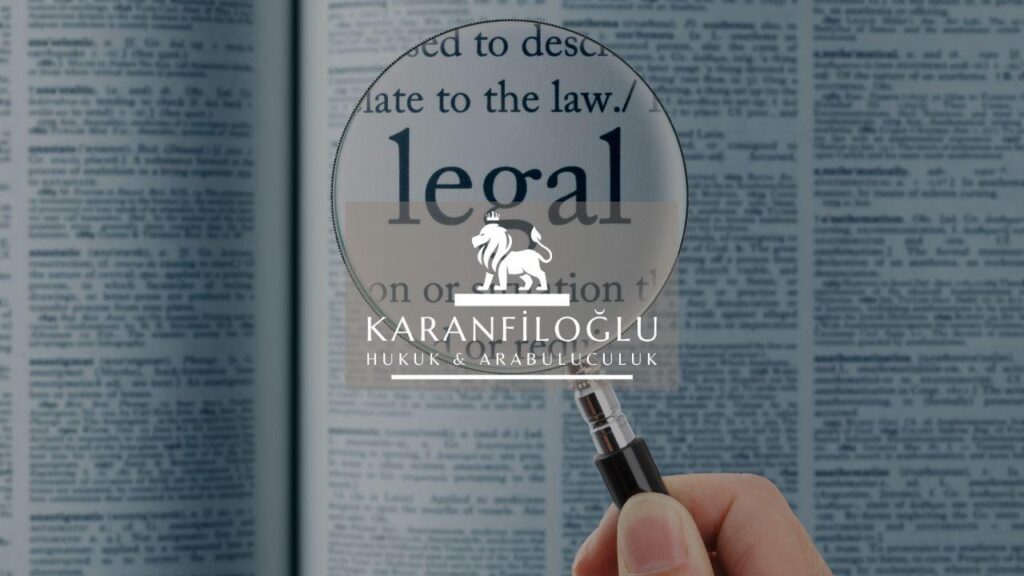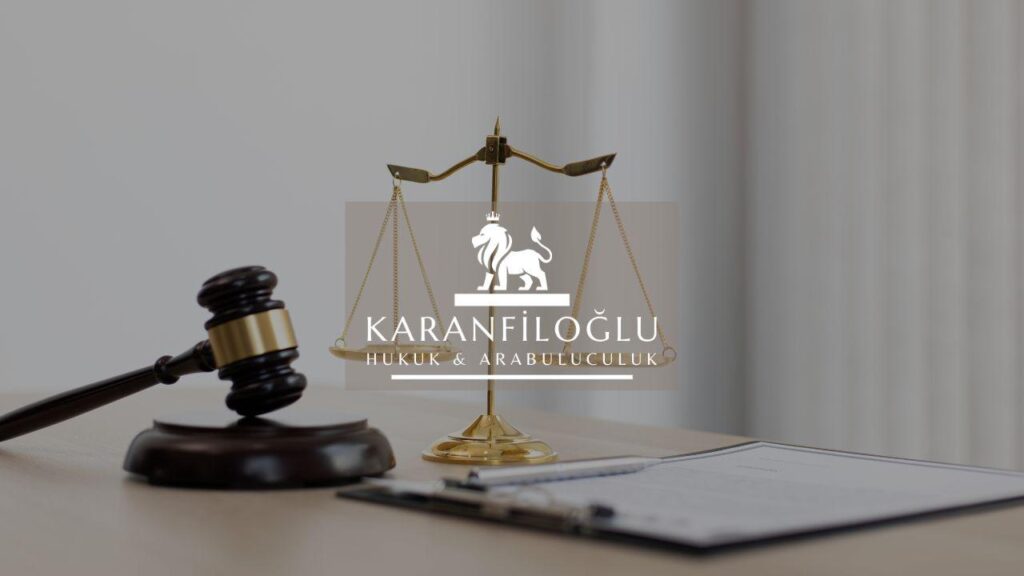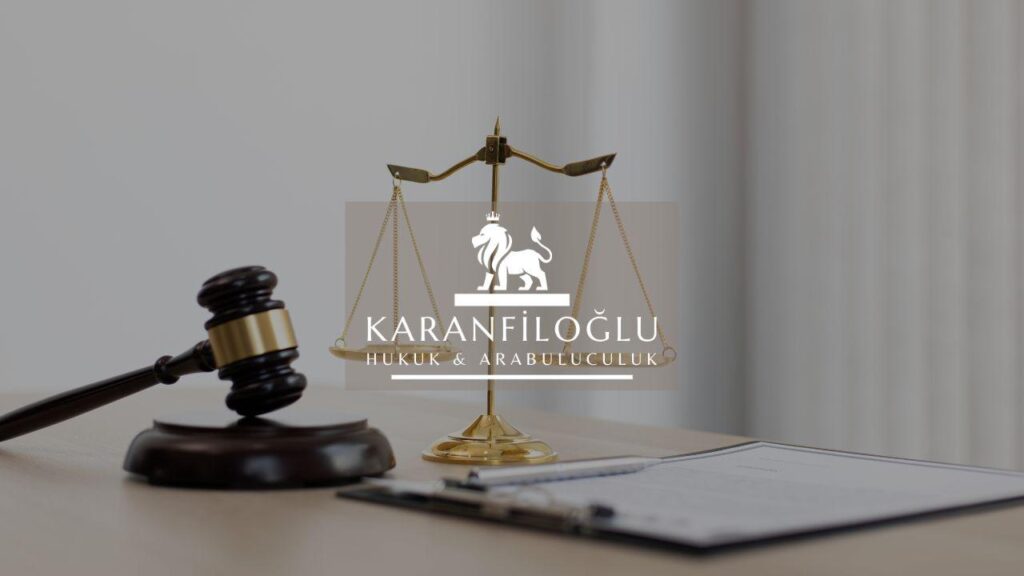Family law in Turkey, governed primarily by the Civil Code, encompasses a broad range of issues affecting familial relationships, from marriage and divorce to child custody and inheritance. At Karanfiloglu Law Office, we understand that family disputes and legal processes can be both emotionally challenging and complex. Navigating through the intricacies of Turkish family law requires not only a thorough understanding of the legal framework but also a compassionate approach to ensure that the best interests of all parties involved are adequately represented. Our team of experienced lawyers is dedicated to providing tailored legal solutions that address the unique circumstances of each case, ensuring that our clients receive the guidance and support they need during these critical times. In this blog post, we will explore key considerations and outline the fundamental processes involved in Turkish family law, offering valuable insights for those seeking legal clarity and assistance.
Understanding Divorce Procedures and Grounds in Turkey
In Turkey, divorce can be sought on both contested and uncontested grounds, each with its distinct procedures and requirements under the Turkish Civil Code. Uncontested divorces, or “agreed divorces,” occur when both parties mutually consent to end the marriage and agree on key issues such as asset division, child custody, and alimony. This process is generally streamlined, requiring less court intervention and typically resulting in faster resolutions. On the other hand, contested divorces arise when there is a disagreement on one or more aspects of the separation, often necessitating extensive legal proceedings. Grounds for contested divorces can include adultery, abandonment, severe insult, and persistent incompatibility, among others. The court plays a crucial role in examining the evidence presented, making determinations that serve the best interests of children and fairly address the concerns of both spouses. At Karanfiloglu Law Office, our expertise ensures that clients are well-equipped to navigate these complexities with confidence and clarity.
One of the critical aspects of divorce proceedings in Turkey is the division of marital assets. Under the Turkish Civil Code, the default property regime is the “participation in acquired property” regime, unless a different property regime has been agreed upon through a prenuptial or postnuptial contract. In this regime, assets acquired by each spouse during the marriage are considered jointly owned and are subject to equitable distribution upon divorce. Items that are deemed personal property, such as gifts and inheritances, remain the individual property of the spouse who received them. The process of dividing assets can be particularly complex and contentious, often requiring thorough documentation and expert valuation. Our skilled lawyers at Karanfiloglu Law Office are adept at guiding clients through this intricate process, ensuring that their financial interests are protected and that a fair and just resolution is reached.
Parental rights and child custody arrangements are paramount concerns in Turkish divorce proceedings, governed by the principle of the child’s best interest. Turkish courts typically favor joint custody; however, they may award sole custody to one parent if circumstances deem it necessary for the child’s welfare. Issues such as the parents’ living conditions, emotional bonds with the child, and each parent’s ability to meet the child’s needs are rigorously evaluated. Additionally, visitation rights and child support are determined to ensure the child’s well-being and stability. At Karanfiloglu Law Office, we recognize the profound impact these decisions have on both parents and children. Our legal team is committed to offering empathetic and strategic counsel to secure favorable outcomes that safeguard the emotional and financial security of our clients and their children, making the transition as smooth as possible for all involved.
Custody and Parenting Rights in Turkish Family Law
In the realm of Turkish family law, custody and parenting rights are guided by the principle of ensuring the welfare and best interests of the child. Upon divorce or separation, the court prioritizes the child’s health, safety, and overall well-being while determining custody arrangements. Turkish courts consider various factors, such as the child’s age, emotional ties, and each parent’s ability to provide a stable environment. Joint custody is not commonly practiced in Turkey; therefore, physical custody is typically awarded to one parent, with the other parent granted visitation rights. However, both parents retain their legal authority and responsibility to make significant decisions regarding the child’s education, healthcare, and overall upbringing. At Karanfiloglu Law Office, we leverage our extensive expertise to advocate for fair and favorable custody arrangements, ensuring that children’s needs and parental rights are judiciously balanced in every case.
One crucial aspect of custody and parenting rights in Turkey is child support, which ensures that the custodial parent has the necessary financial resources to care for the child adequately. The non-custodial parent is typically required to make regular payments, calculated based on various factors, including their income, the needs of the child, and the living expenses of both parents. The aim is to maintain the child’s standard of living and cover essential costs such as education, healthcare, and other basic necessities. At Karanfiloglu Law Office, we assist our clients in negotiating fair child support arrangements and can help enforce or modify existing orders if circumstances change. Whether you are seeking to establish, dispute, or adjust child support, our experienced team provides comprehensive legal support to safeguard your child’s financial well-being.
It’s important to note that, in cases where there is a dispute or failure to adhere to custody agreements or child support orders, Turkish family law provides mechanisms for enforcement and resolution. Should a parent neglect their responsibilities or violate court orders, legal remedies can be pursued through the family courts. This may include filing for enforcement of visitation rights, adjusting child support payments, or even pursuing legal action for non-compliance. Additionally, in situations involving potential risks to the child’s safety or well-being, protective measures such as supervised visitation or restricted contact may be implemented. At Karanfiloglu Law Office, we are committed to upholding the rights and welfare of both parents and children. Our dedicated team offers robust legal representation to resolve conflicts, ensuring that all court orders are respected and that the best interests of the child are always the primary focus.
Financial Settlements: Alimony and Property Division in Turkey
In Turkey, financial settlements during divorce proceedings, including alimony and property division, are critical components that require careful attention and legal expertise. Alimony, or “nafaka,” is awarded based on the financial standing and needs of both parties, as well as their respective contributions to the marriage. The Turkish Civil Code specifies various types of alimony, such as temporary alimony during the divorce process and indefinite or time-limited alimony post-divorce. Additionally, the division of matrimonial property, guided by the principle of equal sharing, mandates that all assets acquired during the marriage be split equally unless a prenuptial agreement states otherwise. At Karanfiloglu Law Office, we meticulously evaluate all financial aspects, ensuring a fair and equitable resolution that upholds our client’s rights and security.
An essential factor in property division involves distinguishing between personal and marital assets. Personal assets, acquired before the marriage or received as gifts and inheritances, remain under individual ownership unless explicitly commingled with marital property. The identification and valuation of assets necessitate precise documentation and sometimes expert appraisal to ensure that they are accurately assessed. At Karanfiloglu Law Office, we understand the nuanced nature of these evaluations and work meticulously to safeguard our clients’ interests. We collaborate closely with financial experts when required to provide comprehensive asset valuations. This thorough approach guarantees that all financial settlements are not only aligned with Turkish law but also reflect an equitable and just distribution, respecting each party’s contributions and entitlements.
To ensure a transparent and fair financial settlement, it is also crucial to address other potential financial obligations, such as debts incurred during the marriage. Both parties are generally accountable for any joint liabilities, which can complicate the division process. At Karanfiloglu Law Office, we perform a detailed assessment to differentiate between individual and joint financial responsibilities and to devise equitable debt settlement strategies. Furthermore, spousal misconduct, such as infidelity or financial impropriety, may influence court decisions on alimony and property division. Our comprehensive approach offers not only meticulous legal representation but also strategic advice to navigate these sensitive issues effectively. By prioritizing clear communication and tailored solutions, we strive to achieve favorable outcomes that honor the financial well-being and rights of our clients.
Disclaimer: This article is for general informational purposes only and you are strongly advised to consult a legal professional to evaluate your personal situation. No liability is accepted that may arise from the use of the information in this article.







